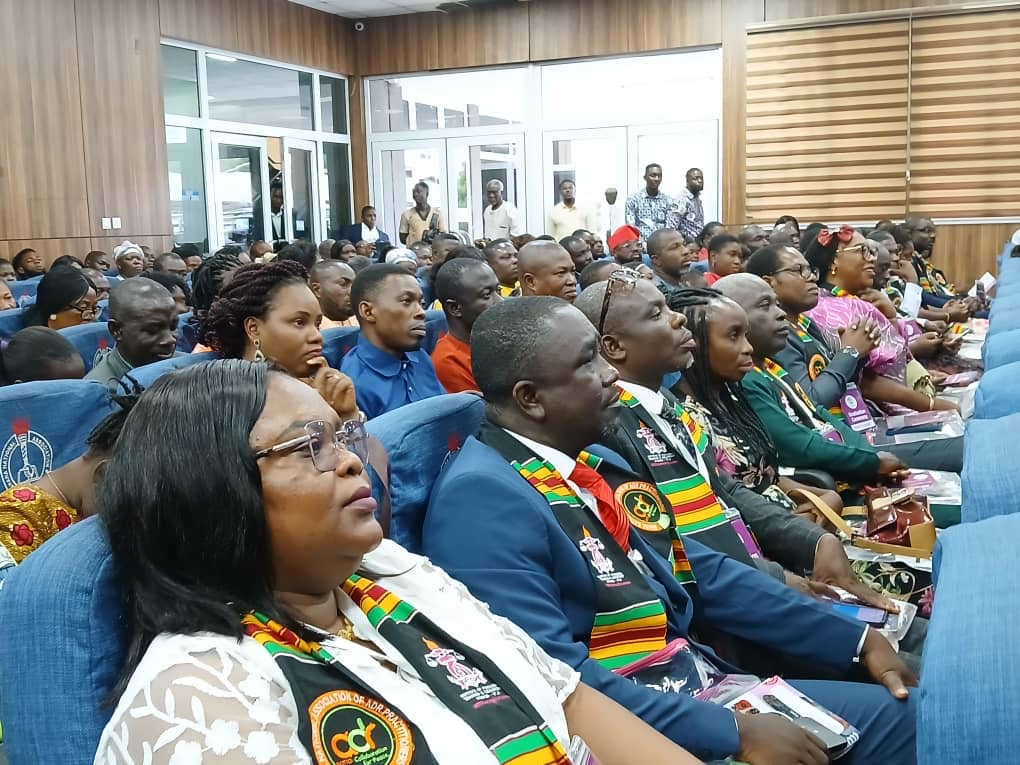
The Need for Visionary Leadership in Ghana
Ghana stands at a pivotal moment in its development journey, requiring leaders who are not only forward-thinking but also deeply committed to the nation's progress. These leaders must be selfless and patriotic, capable of utilizing the country’s abundant resources to build a strong, developed society that offers hope for both current and future generations.
At the graduation ceremony of 106 participants, including chiefs, from three Executive Master’s programmes at the GNAT Hall in Accra, Mr Daniel Owusu-Koranteng, President of the Ghana National Association of Alternative Dispute Resolution (ADR) Practitioners, emphasized the urgent need for such leadership. The programmes, offered by the Institute of Paralegal Training and Leadership Studies (IPLS), included:
- Professional Executive Master in Alternative Dispute Resolution
- Professional Executive Master in General Paralegal Studies
- Professional Executive Master in Chieftaincy Law and Development Studies
Mr Owusu-Koranteng, known for his work as a trade unionist, mining advocate, and human rights activist, highlighted that while Ghana is blessed with natural resources and a vibrant population, the key challenge remains finding leadership that instills honesty and patriotism among citizens. He pointed out that the national interest should always take precedence over personal gain.
“We must use our God-given resources and talents to develop our nation,” he said. He commended IPLS for offering courses that empower professionals to make meaningful contributions to society. He urged the graduands to become advocates of peace, honesty, patriotism, and the ethical principles of the ADR profession.
He further encouraged them to actively participate in transforming the nation and warned against joining the ranks of leaders who exploit Ghana’s resources for personal or foreign interests. “Be peacemakers and proud citizens who will not sell their conscience and country for a pittance,” he added.
Conflict Resolution as a Pillar of Nation-Building
Professor Kwasi Opoku-Amankwa, an Associate Professor at the Kwame Nkrumah University of Science and Technology, emphasized the importance of effective conflict resolution in nation-building. He explained that resolving conflicts creates stability, which attracts investment and promotes economic growth.
He called on the graduands to use their expertise to promote social cohesion and suggested establishing conflict resolution clubs in schools, churches, and workplaces to ensure harmony. This initiative, he believed, would foster a more peaceful and productive society.
Addressing the Gap in Mediation
Mr Alex Nartey, a lawyer and founder of IPLS, pointed out that conflicts are prevalent in homes, workplaces, churches, and communities. However, he noted that Ghana lacks sufficient mediators to assist in resolving these issues. He called for an urgent need to train and equip conflict mediators with relevant skills to foster cohesion and productivity.
Nartey also highlighted the lack of mediators in Ghana’s courts, which hinders the effectiveness of the ADR system. He expressed satisfaction that chiefs, as key agents of change, had taken advantage of the training to enhance their capacity in contemporary conflict resolution.
Building a Stronger Future
Mrs Afua Brown, Rector of IPLS, shared that over 200 people graduated from the institute last year. These graduates were not only equipped with technical skills but also emotional intelligence to handle conflicts constructively. This dual focus on skill and sensitivity ensures that they can contribute meaningfully to society.
The message from the event was clear: Ghana needs visionary leaders who can harness the nation’s potential and guide it toward sustainable development. By investing in education, promoting conflict resolution, and fostering a culture of integrity, Ghana can pave the way for a brighter and more prosperous future.
Post a Comment